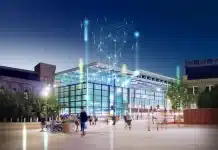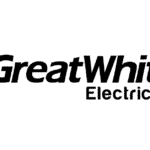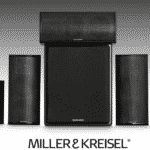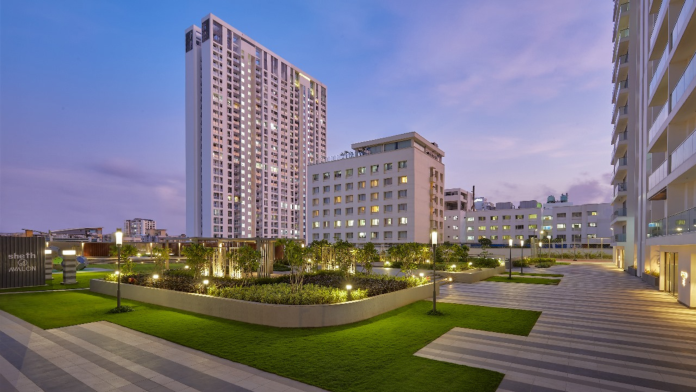
The evolution from conventional structures to smart buildings by integrating Building Automation Systems (BAS); Real Estate Developers are looking for ways to differentiate their projects by incorporating intelligent and sustainable features. Read on to know more…
Copy: India is witnessing a transformative shift from conventional buildings to smart buildings. The rapid integration of Building Automation Systems (BAS) among builders and developers is reshaping the entire industry. Will this fundamental shift change the dynamics of the industry? Will it be heralding a new era of Smart Building? These are the most debated topics in most seminars and conferences related to the Real Estate industry.
Smart Home World has a positive outlook on mass integration of BAS by Builder and Developer across the sector in the coming years. Though Building Automation System (BAS) is a very common concept abroad, even in India we have Buildings, where BAS has been used extensively used in Commercial, Retail, Hospital and Hospitality structures and residential is also gradually adopting it. As there is growing awareness amongst builders and developers about the benefits they provide, developers are embracing these intelligent solutions to meet the growing demand for energy-efficient and technologically sophisticated spaces.
For those few readers who are not familiar with The Building Automation System (BAS), this is a network designed to connect and automate certain functions inside a building. All of the building control systems, from lighting and HVAC (Heating, Ventilation & Air Conditioning) to fire and security systems—all wired through one set of controls. This system regulates various types of functions such as Heating, Electricity, Air Conditioning, Water and Sewer Management through sensors and controls within a particular project.
This system enhances functional efficiency, sustainability, and overall user experience. From automated lighting and climate control to robust security systems, the functionalities offered by BAS are unlimited.
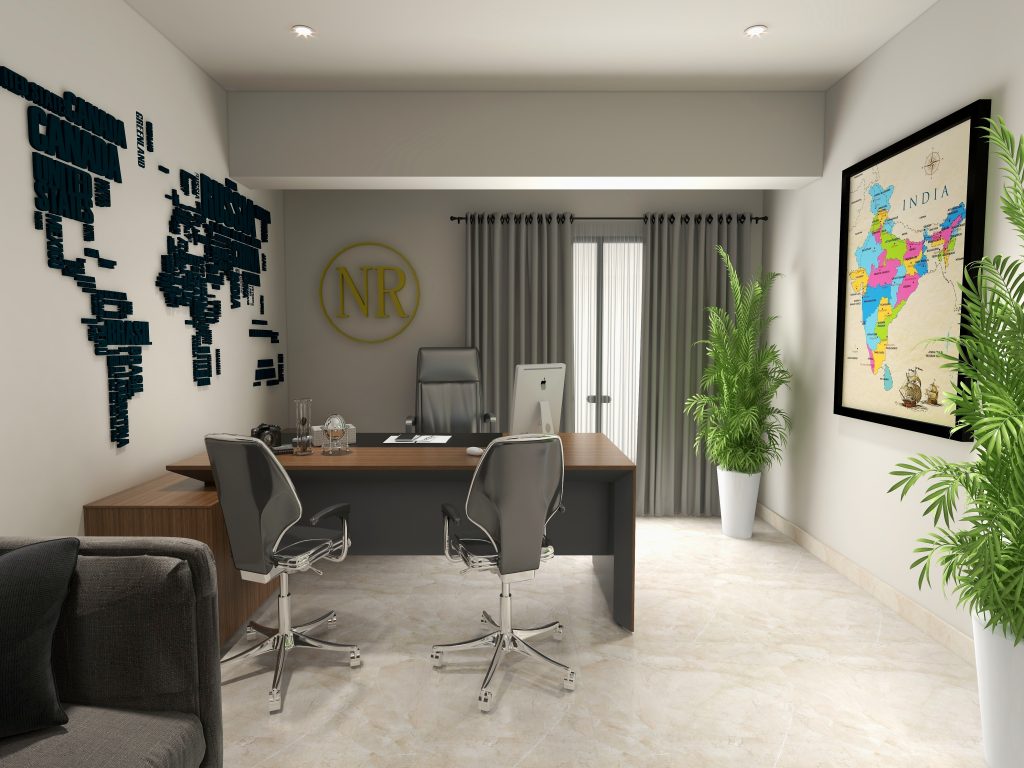
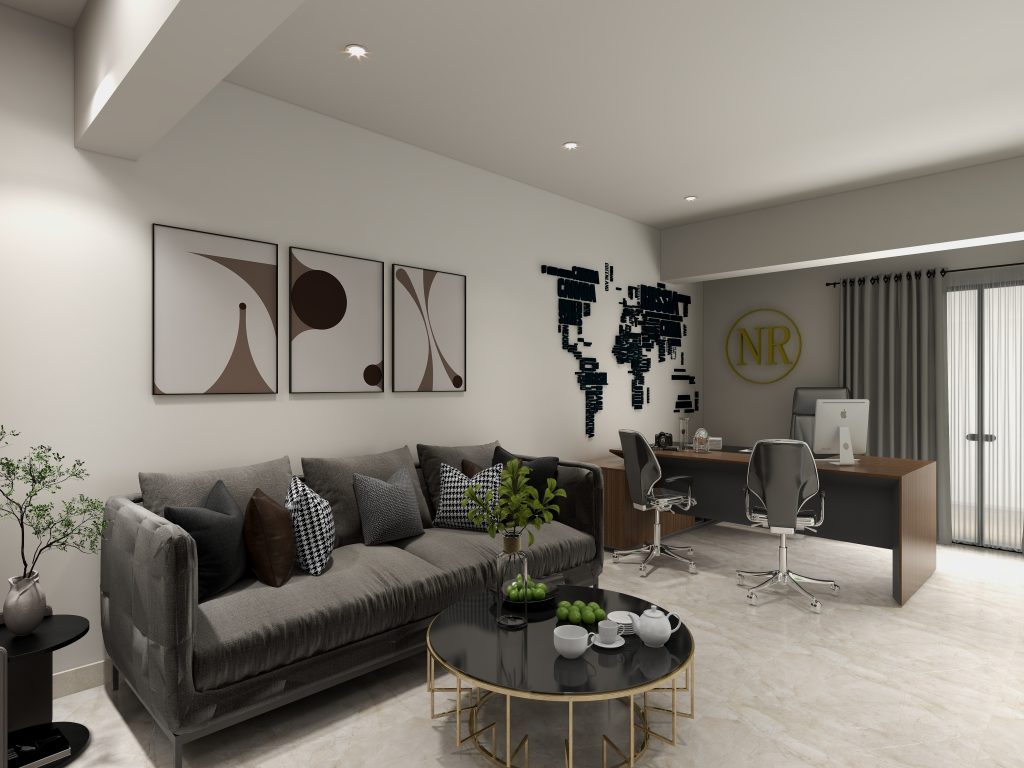
Positive Outlook and Growth Drivers
Many experts have a positive outlook and believe that, in the coming years, the synergy between real estate and Building Automation Systems is poised to redefine urban living, creating environments that are not only responsive to occupants’ needs but also contribute to a sustainable and interconnected future. The journey from traditional buildings to smart structures in India is not just a transition; it’s a paradigm shift that promises to shape how we build and inhabit spaces for future generations.
India is experiencing rapid urbanization, with an influx of people into cities. This has led to increased construction and a growing need for efficient and sustainable building solutions, this is one of the reasons for driving the demand for Building Automation Systems (BAS) in India.
Rising energy costs and a growing emphasis on sustainability have led businesses and building owners to seek energy-efficient solutions. Building Automation Systems (BAS) can optimize energy usage, reduce operational costs, and align with India’s focus on promoting green and sustainable practices.
The Indian government is showing interest in promoting energy efficiency and smart building technologies. Initiatives such as the Smart Cities Mission and various building energy codes encourage the adoption of BAS. Government incentives and policies can significantly impact the growth of the BAS market.
Advances in technology, including improved sensors, communication protocols, and data analytics, make BAS more accessible and attractive. As technology becomes more cost-effective, it becomes feasible for a wider range of buildings in India, including both new constructions and retrofits.
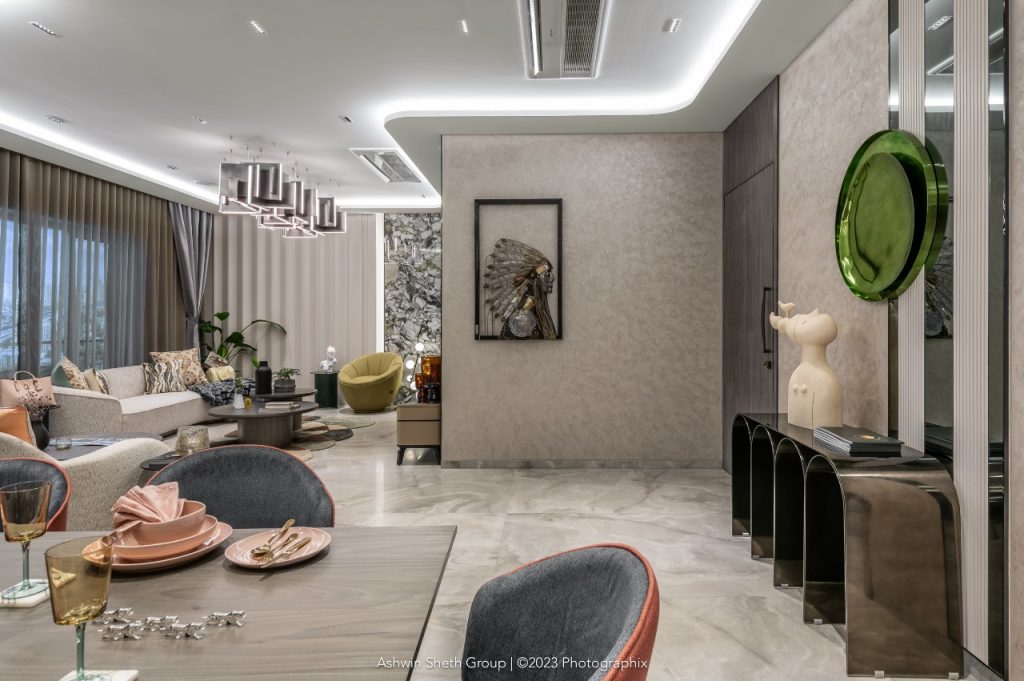
With digitalization, there is an increasing demand for intelligent and connected infrastructure in India. BAS plays a vital role in creating smart buildings that can adapt to the needs of occupants, optimize resource usage, and enhance overall efficiency. As India integrates into the global economy, there is a growing awareness of international industry standards and best practices. Businesses are more inclined to adopt technologies like BAS to align with global standards and improve competitiveness.
When it comes to commercial sectors businesses in India recognize the importance of providing a comfortable and productive working environment for their employees. BAS allows for better control over environmental conditions, contributing to improved occupant satisfaction and productivity. Property developers are looking for ways to differentiate their projects through smart and sustainable features.
Functionality and Advantage
A Building Automation System (BAS) serves as a centralized control system for managing various aspects of a building’s infrastructure, playing a crucial role in optimizing energy efficiency, comfort and operational performance. The primary functions of a BAS encompass control over heating, cooling, ventilation, lighting, and other essential building systems.
BAS functions to limit energy usage as a whole and can result in a slew of environmental benefits that keep building occupants healthier and happier. Some positive outcomes of automation include lower energy usage and tapered waste that lead to cost savings. A building’s stress on the electrical grid also plays a factor, with automation severely reducing that strain.
Facilities management expenses also go down with automated building operations because systems control how things like HVAC and lighting work. Automation also results in a reduction in overall energy use, a positive environmental outcome that can assist in a building earning a green certification. Alternatively, a BAS can mitigate potential problems in real-time, creating a more preventive posture. Building automation solutions can also be tailored to the type and size of facility or facilities, helping a facility manager better oversee larger buildings or multiple buildings.
The brands that provide BAS solutions are Honeywell International, Siemens AG, Johnson Control, Schneider Electric, Carrier, Robert Bosch, Legrand, Hubbel, ABB, Lutron, Creston, Hitachi, Delta Controls, General Electric, Cisco Systems, Rockwell, Control4, Signify Philips, Emerson Electric and Infineon Technology to name a few.
Sudip Saha, Chief Operating Officer (COO) at Future Market Insights Inc, explaining the advantages of Building Automation to the real estate sector says, “The integration of Building Automation has not only elevated real estate projects but also reshaped the very essence of modern living. Smart homes have become the epitome of convenience and sophistication, with automated features leaving an indelible mark on the quality of life for residents. Beyond the immediate benefits, the financial landscape of real estate projects also experiences a positive surge.”

He further adds, “Looking ahead, building and home automation integration is not merely a gradual change but a transition that promises to redefine urban living. Artificial Intelligence (AI) and machine learning, two formidable technological forces, will merge to give outstanding results.”
Speaking about the challenges hampering the adoption, Sudip says, “In the real estate industry, challenges in adopting building and home automation persist like intricate puzzles waiting to be solved. The formidable hurdle of the initial implementation cost looms large, encompassing the acquisition of advanced systems and the essential training of personnel. Convincing stakeholders to make this upfront investment demands a delicate dance of showcasing long-term gains and future-proofing strategies, as the benefits of automation often become more apparent over time. Developers must navigate the intricacies of ensuring that different automation systems seamlessly communicate and collaborate. This demands meticulous planning during the selection phase and ongoing efforts to stay abreast of evolving technologies, ensuring a harmonious and future-ready integration that enhances the overall resident experience. The spectre of data security and privacy concerns casts a long shadow over the integration process. Developers must go beyond superficial assurances and explore the implementation of robust cybersecurity measures and transparent privacy policies. Earning the trust of potential homeowners requires a proactive stance in safeguarding personal information.”
Smart Home World interacts with Select Builders and Developers who share their positive outlook on BAS.

Sanjeev Agarwal, Chief Design Officer, Ashwin Sheth Group says “The integration of Building Automation Systems is a transformative milestone for the entire real estate industry, ushering in a new era of operational excellence. The real-time coordination and responsiveness of smart building systems, empowered by data networks, not only redefine user experience but also set the stage for a future where structures can be operated with unparalleled intelligence and adaptability. From an industry-wide perspective, this innovation is well-aligned with our collective sustainability goals. The ability to harness data for intelligent energy management has emerged as a cornerstone for reducing operational costs across the sector. Automated adjustments to lighting, HVAC systems, and other critical components based on real-time insights, not only optimize energy consumption but also position the industry to meet and exceed stringent environmental regulations. This commitment to sustainable practices paves the way for a future where buildings become more than mere structures, emerging as active contributors to a greener, more eco-conscious world.
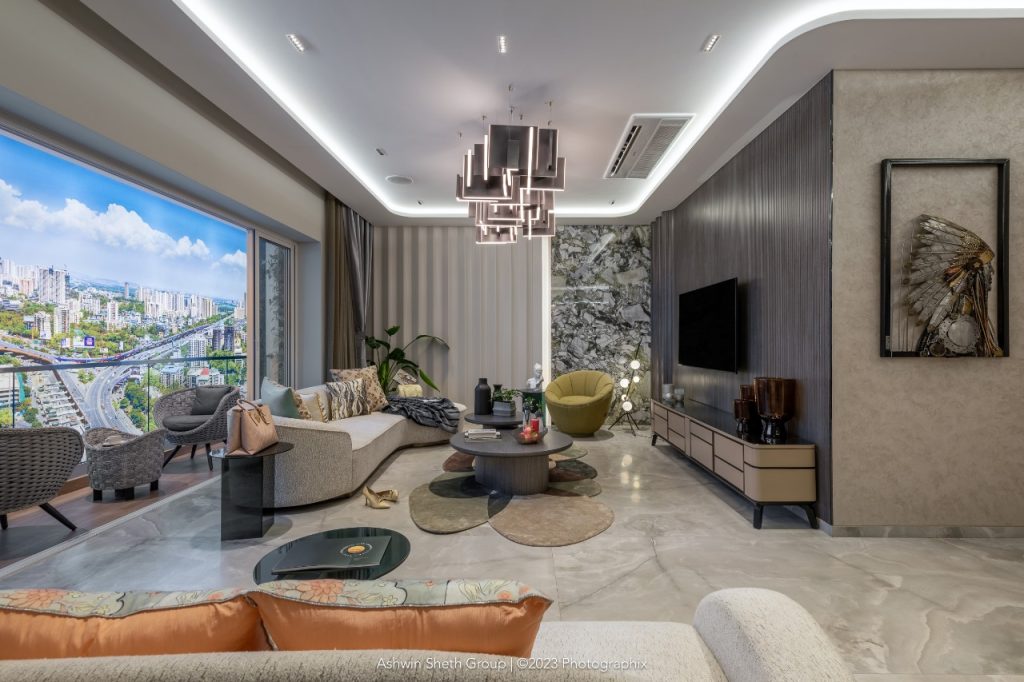
Looking ahead, the ongoing evolution of Building Automation Systems, driven by advancements in technology, will likely redefine the benchmarks for operational efficiency and sustainability within the real estate sector. Smart buildings, at the forefront of this evolution, will continue to reshape the industry, offering intelligent, adaptive, and eco-conscious living spaces that align with the evolving needs of both occupants and the environment. In embracing Building Automation Systems, we are not merely witnessing a transformation; we are architecting a new status quo where buildings play a pivotal role in enhancing sustainability, resilience, and quality of life.”

Neeraj K Mishra, Executive Director, Ganga Realty shares his experience on integrating a Building Automation System in his project and how it has impacted the overall performance of their buildings says, “Building Automation System is one of the most desirable features of our uber-luxury project, Nandaka 84, located in Sector 84, Gurugram. It allows single access control and a common interface to manage key operations, such as Heating, Ventilation, and Air Conditioning systems (HVAC), Lighting, Security Systems, and Air purification. The management from a singular interface is helpful in multiple facets such as coherent coordination, sound decision-making, and running energy-efficient and cost-efficacious functions with lower contingencies of human inaccuracy. There is a range of high-quality automation, such as Thermostats, Occupancy Sensors, Humidity Sensors, and Fire and Smoke Detectors performing functions like regulating room temperature, lighting, and stamping out the risks of fire accidents, channelizing lower operational and energy costs. In a nutshell, Building Automation Systems have significantly upscaled our project’s quality based on parameters of time and occupancy.”
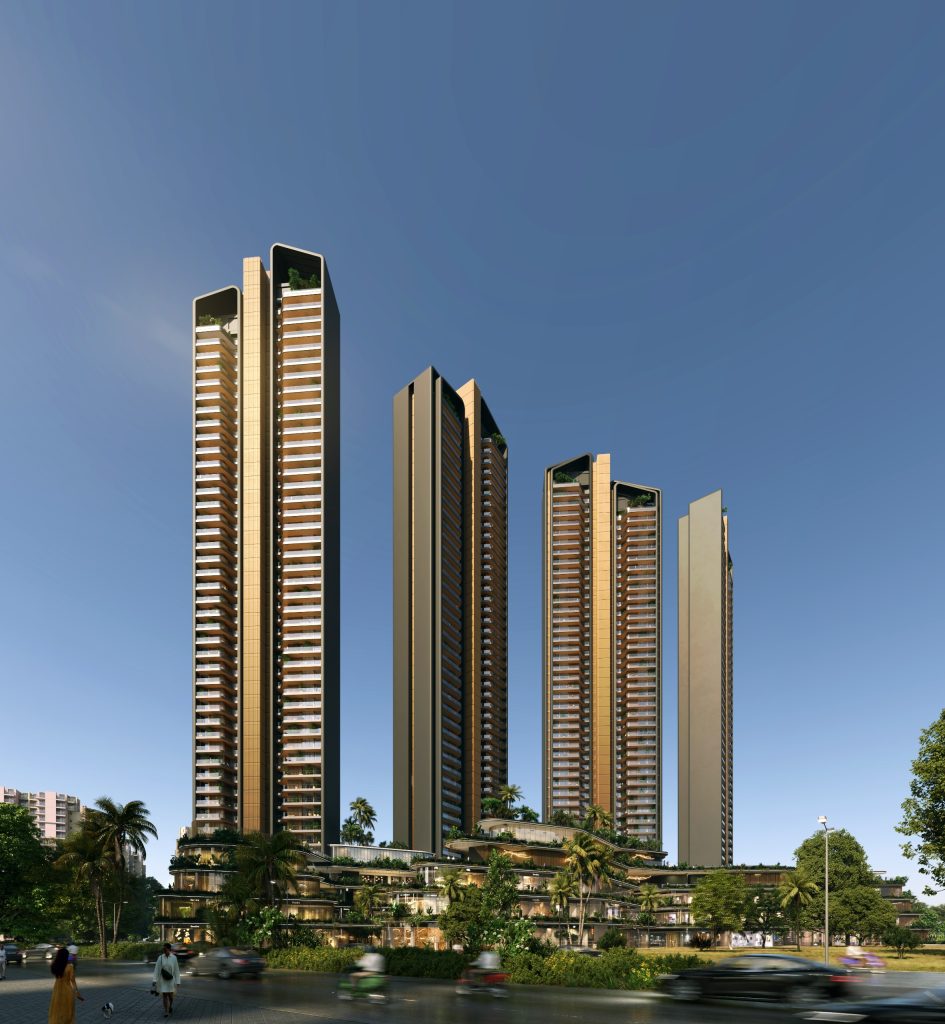
He further adds insights on how the Building Automation System has contributed to the sustainability goal, “Promoting Sustainable Living through our projects and undertaking every possible measure to ensure this is one of the primary goals at Ganga Realty. Using Building Automation Systems is also a profound step taken in the same direction. It feels an immense amount of pride in stating that our endeavors to integrate the building management systems within our project, Nandaka 84, have truly helped us to expand its sustainability footprints. The centralization of utility management through a common interface allows us to effectively reduce operational expenditure and energy profligacy. The authorization of a single-access control for managing multiple functions also lowers human errors and enlarges the scope of green inclusion within a project by emboldening home buyers to invest in them and make well-informed decisions. To cut a long story short, Building Automation Systems has helped tremendously with the sustainability goal of our new project. We have partnered with foreign architects like UHA as our architectural partner. Alongside, we have associations from well-established designer groups, such as Mace (Technical Partners), IGBC (Sustainability Partner), JLL (Knowledge Partners) FDF (Facade Partners), and GSA (Landscape Partners), respectively for Nandaka 84.”
Saransh Trehan, Managing Director, Trehan Group, Says, “We will be using the Building Automation System in our upcoming luxury project, Trehan 71, which is located on the Southern Peripheral Road in Sector 71, Gurugram. It will allow us to run cost-effective operations while also propagating conservation and judicious use of energy systems with little to no scope of manual follies. Instituting BAS will equip us to prevent unauthorized access, trespassing, and privacy or security violations through Security and Access Controls and will also alert and neutralize fire mishappenings or other risk concerns.”

“Trehan Home Developers is devoted to chalking out, initiating, and undertaking new and refreshing methods to increase the energy-efficiency plank of our new projects as it promotes a noble message of energy conservation and sustainable use of resources, undergirding an era of green real estate projects. BAS has redefined our project by increasing its eco-friendly, energy-saving, and sustainable growth card, aligning with our objectives and vision regarding this project.”
When it comes to untapped opportunities Sudip Saha, Chief Operating Officer (COO) at Future Market Insights Inc. says, “Developers can bring fresh perspectives and cutting-edge solutions by developing partnerships with technology start-ups and established players in the automation industry. By tapping into the collective originality of these collaborators, projects can transcend conventional boundaries, offering residents unparalleled experiences and features that redefine modern living. Developers are also challenged to think beyond the conventional and embrace the uncharted territories of automation. The fusion of creativity, sustainability, and collaboration addresses challenges and propels real estate projects into realms of innovation where the potential is limitless. As the industry transforms, those who dare to pioneer these untapped opportunities will undoubtedly shape the future of real estate development.”
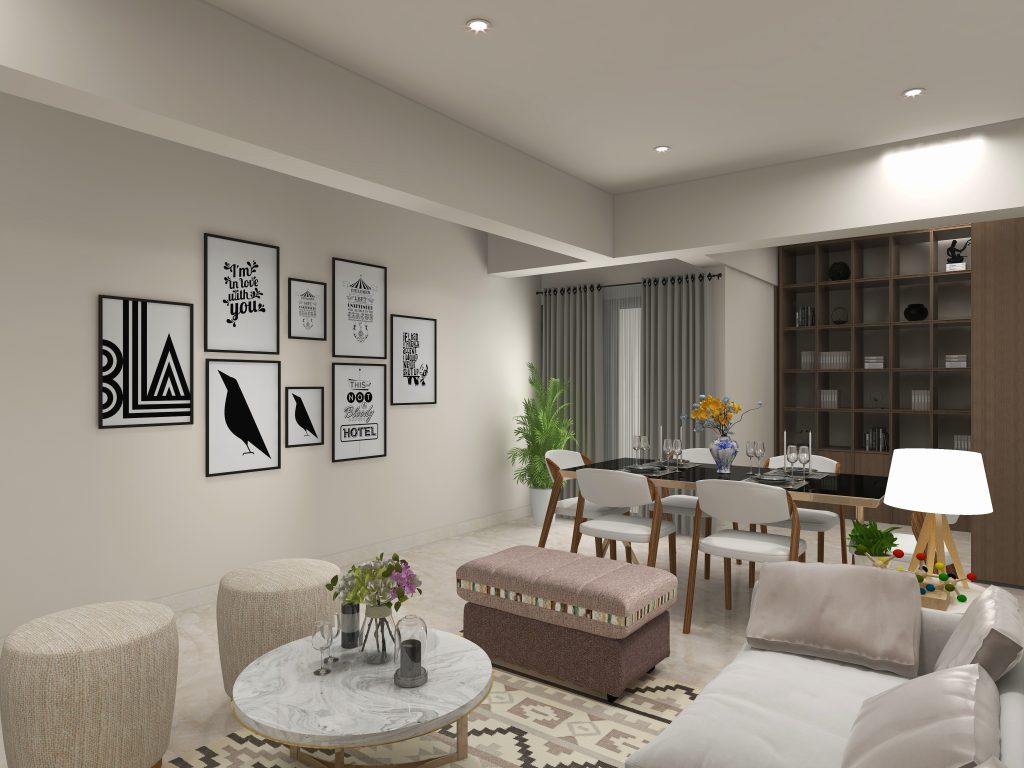
Developers and stakeholders who embrace these technologies will undoubtedly lead the way into a future where Intelligent buildings and smart homes are the new standard in the Real Estate segment.
Click here to read full January issue – https://www.smarthomeworld.in/magazine-january2024/





